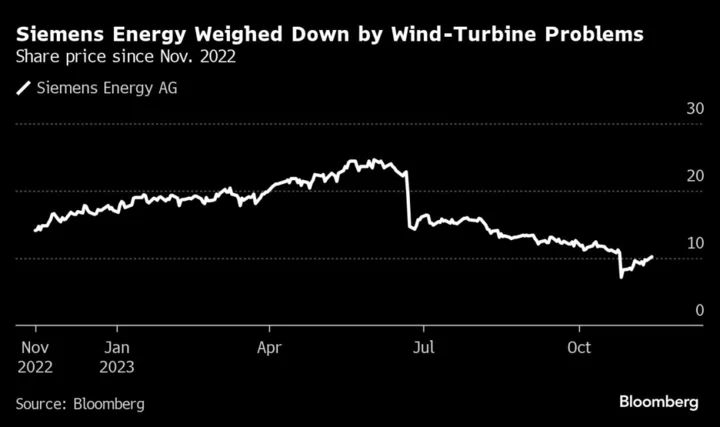Apple said a lot of words during its recent major event, in which it revealed a new headset and updates for all of its platforms over the course of more than two hours. But there was one specific word – or, more specifically, two initials – that it did not mention at all.
The company did not reveal a single product powered by AI, and did not mention artificial intelligence even in passing. It was a marked contrast with other recent tech launches, which have seen companies attempt to link a wide array of new products with the hype over artificial intelligence.
In advance of the event, many had speculated that Apple could be forced to discuss AI because of the increasing focus on how companies are using it in their products. Google’s recent I/O event, for instance, made heavy use of the word, seemingly in response to criticism from pundits and shareholders that it was failing to convince the world it had done enough with artificial intelligence.
Apple instead opted to describe most updates that could be called “AI” as machine learning, using a more precise term that has fallen out of popularity as artificial intelligence has become so popular as a marketing term. But it even seemed to avoid using that phrase often, even when it could have done.
It was not for want of new features that are built on tools that could be described as AI, if Apple wanted to. It showed off everything from automated transcriptions of voice notes and voicemails to AirPods features that can recognise sounds in the environment and filter them out or not depending on whether they seem urgent.
Describing them in other ways therefore seemed as if it was an intentional rejection of what has become a voguish way of describing new features in tech in recent months.
Apple generally tends to favour words of its own invention, over new and much hyped terms in the technology industry. It also avoided using the word “metaverse” throughout the whole launch event, for instance, despite launching a product that fits specifically with the new focus on virtual and augmented reality.
But the lack of mention of AI seemed as if it was the result of an even more active choice to reject the wording. In that way, it seemed to reflect an increasing concern that the widespread use of artificial intelligence as a marketing term is serving both to water down the meaning of the word and confuse users about the actual nature of the product it is being used to describe.
It may also be part of an increasing sense that AI is not necessarily viewed positively, and could reflect badly on the products that it is used to market. Recent months have seen a run of reports about both the danger of AI products and the techniques used to make them, such as the analysis of large amounts of data without the consent of those depicted, and so Apple may have decided that using the word could lead to negative connotations.









